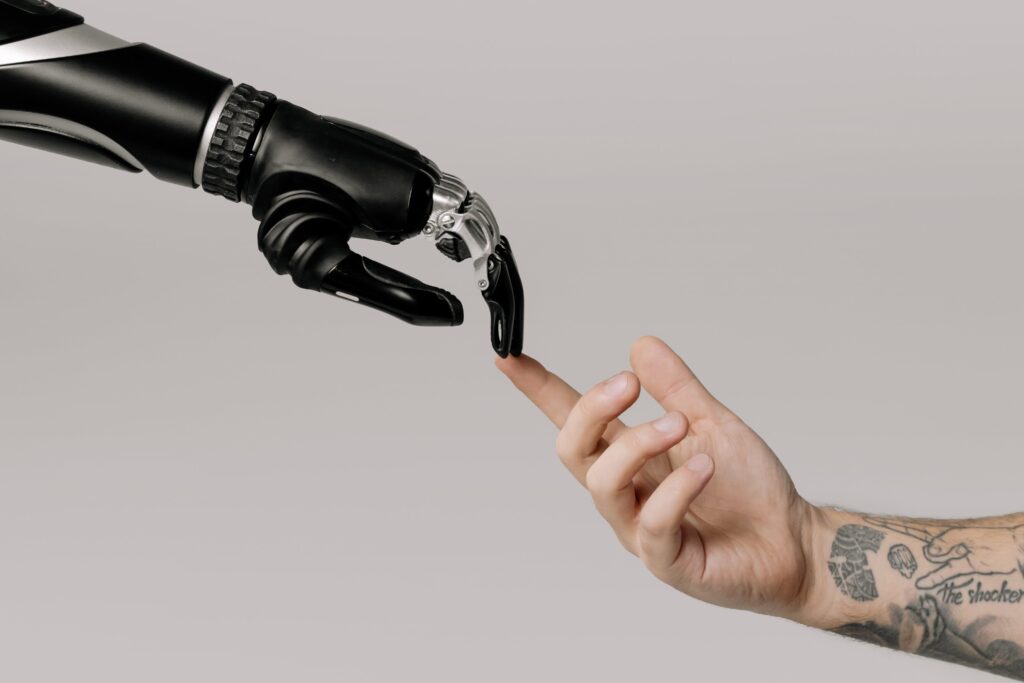In the ever-evolving landscape of marketing, artificial intelligence (AI) has emerged as a powerful force, reshaping how businesses connect with their audiences. The integration of AI into marketing reflects a paradigm shift in how businesses understand, reach, and engage with their audiences, marking a significant evolution in the way marketing is conceptualized and executed in the contemporary business landscape.
Opportunities
Data-Driven Decision Making
AI in marketing enables businesses to make data-driven decisions by analysing vast amounts of consumer data. From customer behaviour to market trends, AI algorithms provide valuable insights. Ultimately, this empowers marketers to tailor strategies that resonate with their target audience. Data-driven decision making is a strategic approach that harnesses the power of data to guide organizational choices, drive performance improvement, and navigate the complexities of today’s business environment.
Personalization at Scale
One of the most significant advantages of AI in marketing is its ability to deliver personalized experiences at scale. Machine learning algorithms analyse individual preferences and behaviours, allowing marketers to craft personalized content, recommendations, and advertisements that cater to each customer’s unique needs.
Automation of Repetitive Tasks
AI automates mundane and repetitive tasks, freeing up valuable time for marketers to focus on creative and strategic aspects. Chatbots, for instance, can handle routine customer inquiries, ensuring a seamless and efficient interaction, and saving time for both businesses and consumers.
Enhanced Customer Engagement
Chatbots, virtual assistants, and AI-powered communication tools enhance customer engagement by providing instant responses and support. This not only improves customer satisfaction but also fosters a sense of connection between brands and their audience.
Predictive Analytics
AI-driven predictive analytics employs advanced algorithms and machine learning to analyze past data and forecast future trends, surpassing traditional statistical methods. Subsequently, this fusion empowers organizations to make informed decisions, mitigate risks, and gain a competitive edge in data-rich environments.
Challenges
Data Privacy Concerns
The increased reliance on AI means more data is being collected and processed. Nevertheless, this raises concerns about data privacy and security. Therefore, marketers must navigate the delicate balance between personalization and respecting user privacy to maintain trust. Finding the right balance between technological innovation and data privacy is a complex task. Innovations such as artificial intelligence and machine learning heavily rely on vast datasets, raising ethical questions about how to navigate the trade-off between technological advancement and individual privacy.
Algorithmic Bias
AI algorithms are only as unbiased as the data they are trained on. Marketers need to be aware of and address potential biases in AI models to ensure fair and equitable outcomes, especially in diverse and inclusive marketing campaigns.
Overreliance on Automation
While automation streamlines processes, an overreliance on AI can lead to a lack of human touch in marketing strategies. Balancing automation with genuine human connection is crucial for building authentic relationships with customers.
Skill Gap and Training
In the rapidly evolving landscape of artificial intelligence (AI), the widening gap between the demand for skilled AI professionals and the available talent pool has consequently become a significant challenge for organizations worldwide. Therefore, as AI continues to permeate various industries, addressing the skill gap through targeted training initiatives has become a strategic imperative.
Rapid Technological Advancements
Recent years have seen AI rapidly advance, propelling us into new frontiers at an astonishing pace. Moreover, this evolution is transforming how we live, work, and interact with technology, bringing forth innovations in deep learning, computing power, automation, robotics, and interdisciplinary collaboration.
Conclusion
It’s evident that the opportunities presented by this technology are vast. From data-driven insights to personalized customer experiences, AI has revolutionized the way businesses connect with their audiences. As a result, marketers must tackle challenges like data privacy and algorithmic bias with care. Ultimately, by blending AI’s power with human-centered values, businesses can fully harness its potential in marketing.

